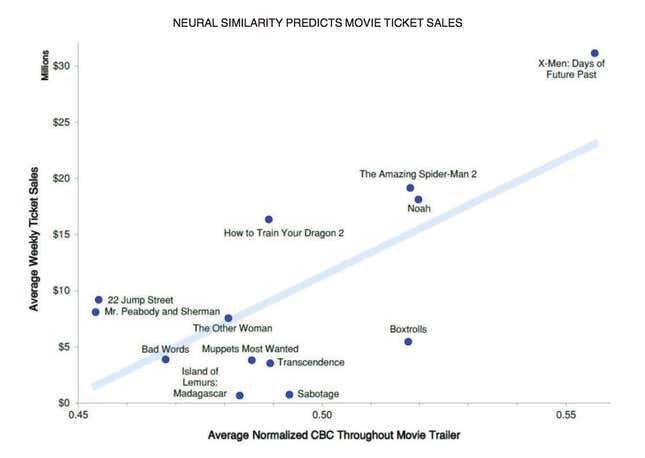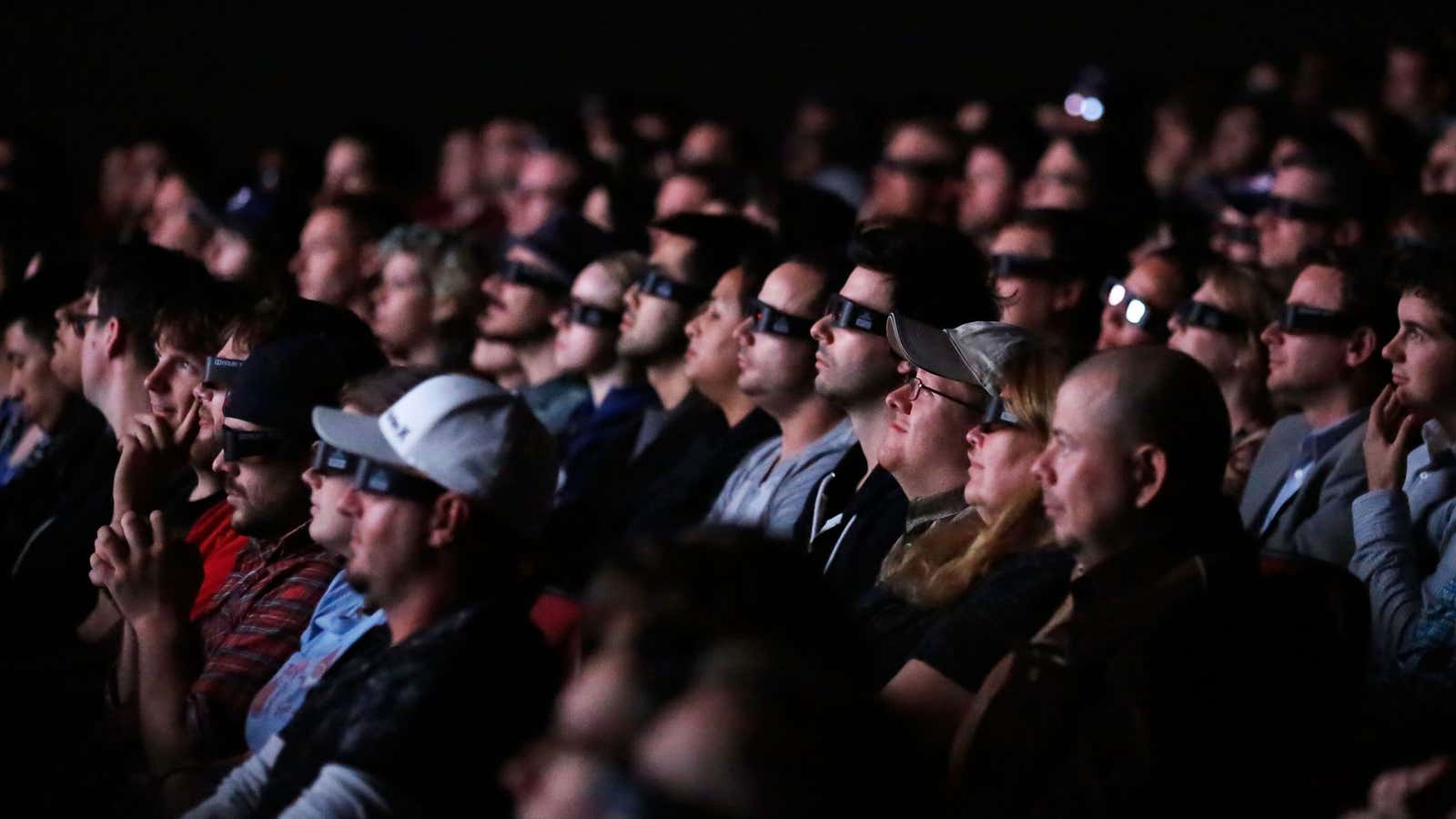The way our brains behave when we watch movie trailers can help neuroscientists predict whether films will be box-office hits or duds, according to a recent study out of Northwestern’s Kellogg School of Management.
Shared experiences like going to the cinema can stimulate similar parts of the brain in audience members, said the study, published in the Journal of Consumer Research (paywall). So, when we’re engrossed in a film, our brainwaves look alike.
“It turns out, when our brains are truly engaged with the content we are watching, they essentially look the same as one another,” Samuel Barnett, one of the study’s researchers, told Northwestern NOW.
Barnett, with neuroscience and business professor Moran Cerf, monitored the brain activity of 58 US theatergoers who watched movies of their choosing at a theater in the US state of Illinois during a four-week period in 2014. The participants were offered free admission in exchange for participation in the study. And their neural and physiological data was recorded during the movie. (Two people seated next to each other were studied per showing.)
Afterwards, the participants completed a surprise survey about the movie and the trailers to see what they remembered, how much they were willing to pay to see the movies advertised, and whether they liked trailers. They were also contacted six months later to see if they still recalled the trailers they saw.
The trailers that produced the most similar brain waves among viewers were usually the most memorable, the study found. And they often corresponded with higher ticket sales when the movies were released.
The trailer for X-Men: Days of Future Past had the highest similarity score, based on viewers’ brain activity, and it was remembered the majority of viewers in the surveys. It also performed the best at the global box office of all the movies studied. It earned an average of $31 million per week in theaters, according to the study, which used average weekly ticket sales instead total revenues to show box-office performance in line with each movie’s availability.

The animated Mr. Peabody and Sherman, meanwhile, had the lowest score and took home less than a quarter of what X-Men earned at the global box office, with $8 million per week.
“People are probably going to remember a trailer for movies like X-Men or Spider-Man best because they are already familiar with the characters,” Barnett told Northwestern NOW. “But with our method, we are not only testing their memory, but also how engaged they feel with the content of the advertisement as it’s playing.”
According to Cerf and Barnett, measuring brainwaves like this can forecast future ticket sales more accurately than traditional focus groups because it eliminates viewers’ subjectivity and recall biases.
But more research is needed to see if the results hold true for a larger sample of trailers and theatergoers.
